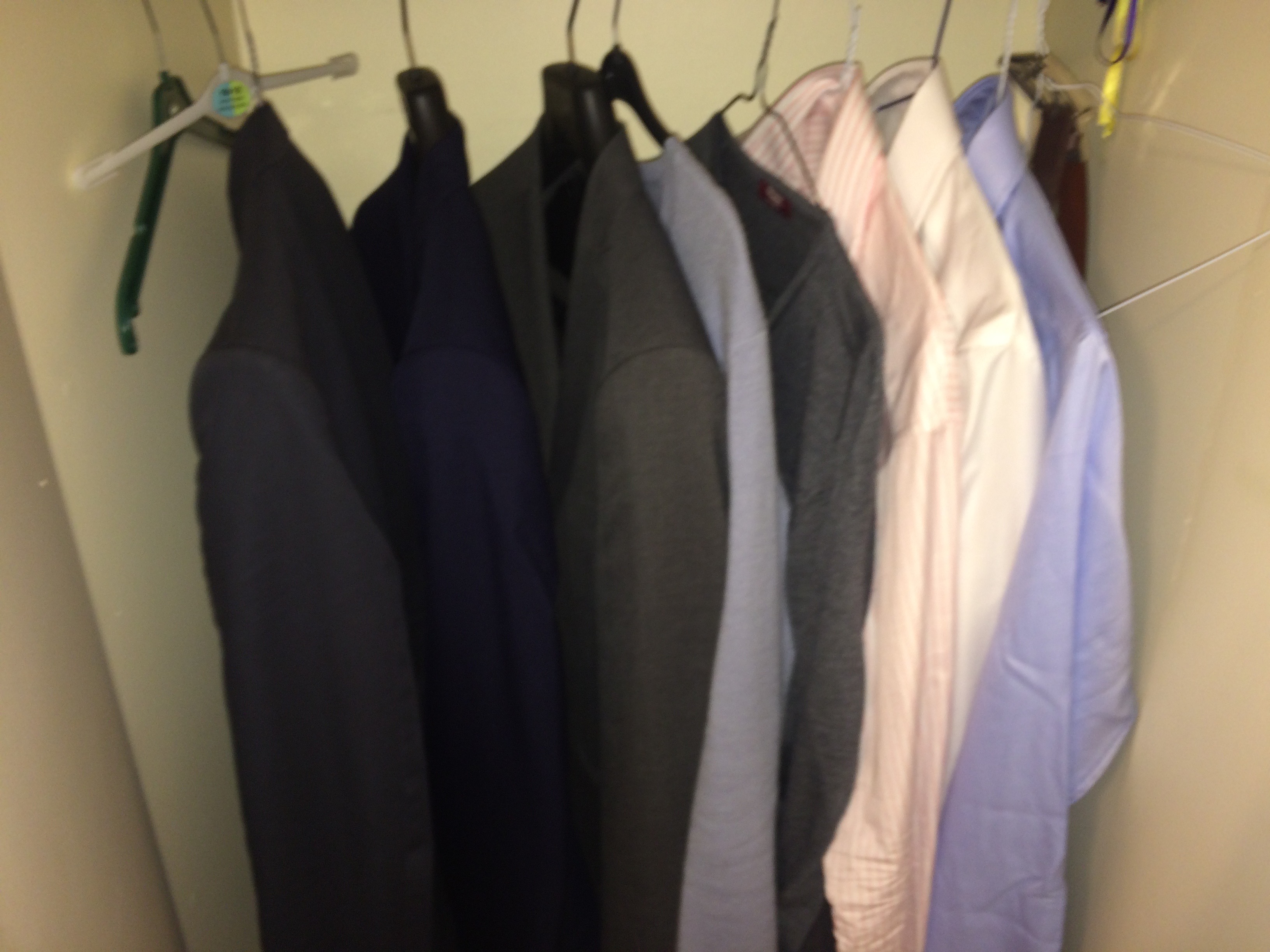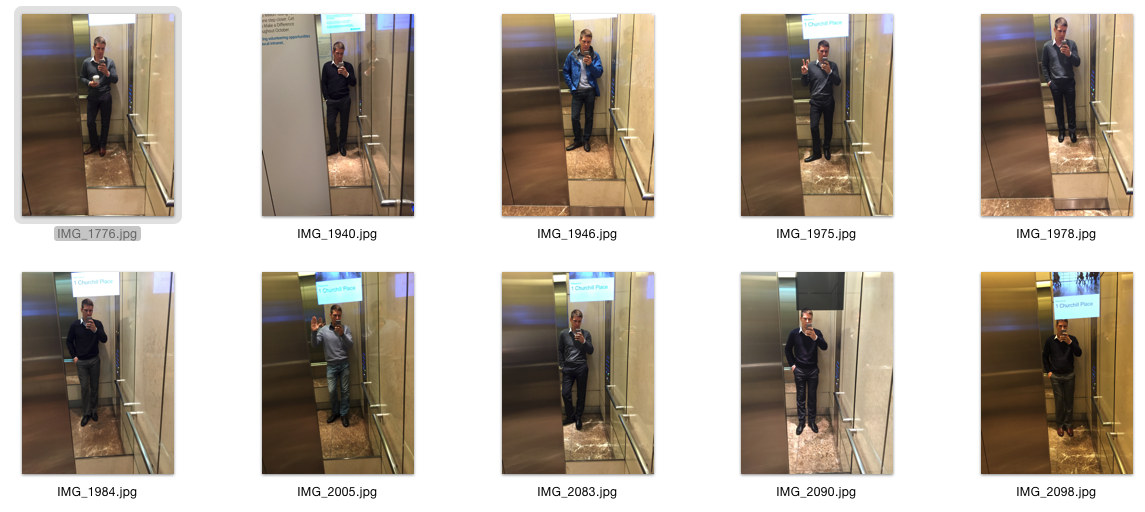This is a story of a sabbatical that I never got to take...

Anybody who says I'm ungrateful for my life needs to have their head examined. My life has been paired down to the nth degree. Anybody who has lived aboard a 22ft boat for weeks knows how to live a small life.
In 2003, I asked HSBC if I could take a sabbatical, so that I could backpack around Australia, New Zealand and South-East Asia. The important thing about the trip, for me, was that I needed to make more friends and do a bit of independent growing up, away from the Angel Islington and Canary Wharf, which my whole life revolved around.
My old boss, an Exeter graduate who had completed an M.Phil (Master of Philosophy degree) in Epidemiology at Oxford, was a brilliant guy and did his level best to get this agreed with Human Resources. The rule at the time was that you had to have been an employee for 2 years, which I had been. It had been agreed and I started to get excited about tying my knapsack to a stick and setting off on the road to secure and happy adulthood, with some brilliant travel stories to tell when I got back.
Sadly, HR decided to change the rules under our feet, and the trip of a lifetime became a choice between resignation or cancelling my trip. I chose the latter, as I had a secure job with a conservative bank that I have loved since being a Griffin Saver, in the days of Midland Bank. Working for HSBC was very personal for me. Also, memories of the Dot Com crash and 9/11 were fresh in my memory. I valued my job, and I liked working for my boss. He's a great guy: so disciplined and inspiring.
Possibly as some kind of compensation (I'm totally speculating here) my boss allowed me to ride his coat tails into a very important project, whereupon I sulked for months and months, because I hadn't fully comprehended what he might have done, in light of the clear importance of the project that I was a part of. My boss exposed me to the very best people within HSBC, and perhaps tried to pair and mentor me - perhaps deliberately, who can say? - with people who are still to this day an inspiration in everything I think and do. I can't help but well up with tears thinking about what an amazing time that was, even if I was sullen and sulky for so much of it.
When the pressure really ramped up on the project, towards the go-live date, I flicked the switch from 'zoned out' to 'warp drive' and started putting in the hours I should have been. I had wasted a lot of time, so this was hardly anything more than working as hard as I should have been all along, but nobody should underestimate the effort that was put in, either.
Anyway, I was eventually ranked - quite fairly - on my average effort over the whole year, rather than just on the 'heroic' efforts towards the end. There was one issue that I was very very tenacious with, having to work with operations, software vendors, networks, sysadmins and security to track down a particularly nigglesome problem. This taught me some well-needed discipline, but not, however, much humility.
My boss did his very best to knock a streak of arrogance out of a jumped-up young upstart: I found it very easy to do the work that was asked of me, but I was lazy, sloppy and work-shy, to be honest. Nothing was much of a challenge, so instead, I filled my time reading the BBC News website, chatting with my friends on the Kiteboarding forums and planning my next weekend trip to the beach or overseas Kiteboarding trip.
I suppose you could say that I had my cake and ate it. I got to continue my career in London, and I also got to travel the globe and meet a set of friends who became a part my life, almost like University or "gap-yah" friends (gap year to those who don't speak posh) would be in the lives of my rich upper-middle-class white spoiled brat peers.
However, I still harboured a bitter resentment against the world for having 'conspired' to deny me a year of diminished responsibility, casual sex with sun-kissed young women with sand in their hair, and generally having fun in the playground of World's backpacking hostels. I felt I was entitled to this, like all the University-educated upper-middle-class twentysomethings in Banking.
I couldn't see that I had kind of won. I had kind of gotten both. I couldn't see that my life was awesome already.
When my boss told me that I been ranked just below the very top performing employees of the company that year, I was mighty p1ssed off. He did a very good job of staying calm and not telling such an arrogant little sh1t to p1ss off. Partly at issue, was that entitlement is bred into us by our upbringing and society around us.
We are told what to expect depending on our position in the World. Perhaps we also misunderestimate (sic.) the effort that is going on beneath the serene surface: some of us are wild swans, with our legs frantically paddling under the surface, while we glide along the surface looking cool, calm, collected & awesome.
Tony Blair told the world that 50% of people should get to go to University. I wanted to go to University, but always felt such a deep sense of responsibility to be self-sufficient and work hard, it seemed decadent and profligate to spend so much money, geting into debt, just drinking and reading books. I have always been excellent at cramming for exams and words seem to flow out of me like so much water in a sieve, so that part didn't exactly worry me.
It's always been a bugbear of mine that people think that education is a right. It's not. It's a privilege, but it is also essential to advance civilisation and humanity. It can improve lives and society more than any other gift that we can give to the developing nations. Teach a man to fish etc. etc.
People have tried to gently, and not-so-gently steer me towards teaching. I loved my teachers and I love teaching. I can remember all the names of my teachers, and I still fondly recall so much of what they taught me in life, and how they inspired me. I hated school though, because the bullying was so unbearable. But then again, I was always terrified of electricity and ended up becoming an electrician, so fears can be overcome.
I think I know now that, when I'm done with wearing a suit, I want to teach - so much that it makes me absolutely sob my eyes out as this realisation dawns on me - Physics, Maths and Design/Technology/IT working with underpriviledged kids in state comprehensive schools in Inner City London. This doesn't have to be soon. It's something to aspire to for semi-retirement, I think.
The only way that I can think to make that a reality from my current situation of zero cash, zero assets and massive debts, is by draining the swamps in banking, as an IT contractor, and by changing the political landscape of the UK so that we pay Teachers a decent living wage and top up the salary of those working in London so that they can afford to live here.
Ideally, I would like to finish the project I'm on, and deliver of a stint of many months and years of steady high-quality work for the global bank I have always loved admired and respected the most. HSBC really is a great place to work, and you really can be reassured that when we are all done, it's going to be good for another 150 years of helping people and businesses to achieve their full potential.
Maybe I'm just a hopeless dreamer. Answers on a postcard if you've got a better idea.

Anyone who says 'narcissist' to somebody who has decided to wear a grey suit for 18 years is going to get a punch in the mouth (Winter 2014)
Tags: #career #london #banking #university #hsbc
